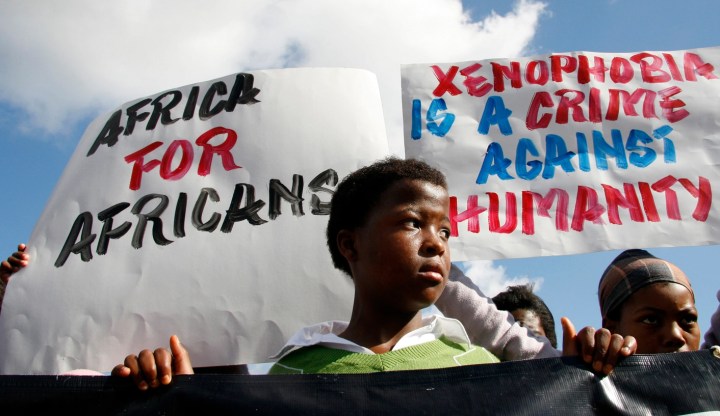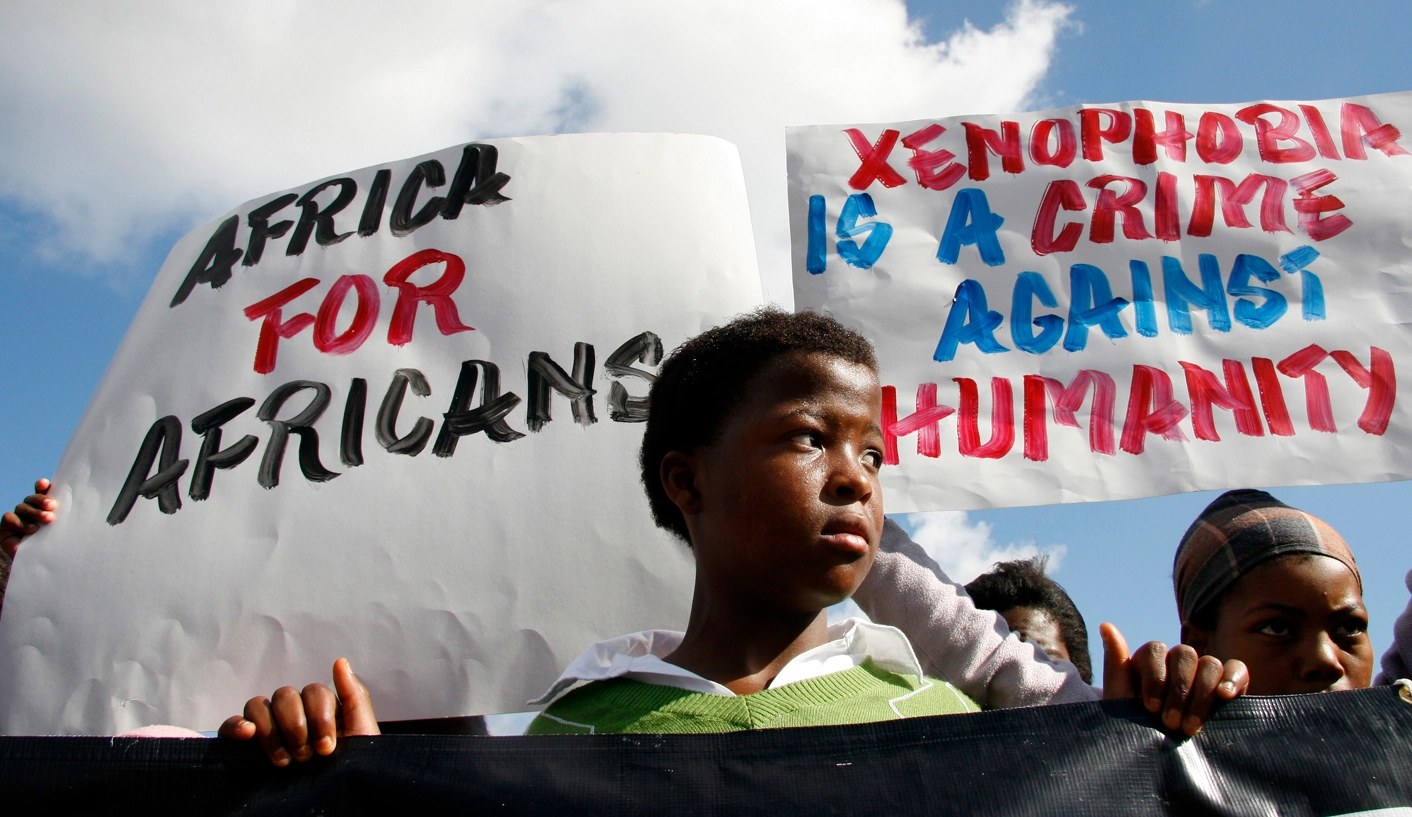XENOWATCH
Vigilante attacks in Limpopo on the rise as communities lose faith in police

The brutal murder last month of four Zimbabwean men in the rural village of Chavani, east of Makhado in Limpopo, was the latest in a series of mob attacks and vigilantism that is becoming increasingly widespread in the province, signalling a loss of faith among communities in law enforcement.
The four Zimbabweans who were killed were part of a group of five men accused of stealing solar panels and power cables in the area. A recent power outage in Chavani and surrounding villages was all it took to spark the violence.
An angry mob went from hunting down and attacking the alleged thieves to targeting migrants in Chavani and nearby villages.
More than 200 Zimbabwean, Malawian and Mozambican migrants were chased from their homes, with some being forced to hide in the bushes or seek refuge in other villages.
The situation has since calmed down, with most migrants returning to their homes. However, Herman Moyana, branch manager of the Musina Red Cross that was assisting migrants, said it remained tense.
“We have already repatriated a family of five. It is a husband, a wife and three children. They went back home [to Zimbabwe] safely. They were afraid to stay in South Africa,” Moyana said.
Shocking figures
The South African Police Service (SAPS) recently announced shocking figures showing an increase in mob justice and vigilante attacks in the country.
In August, Police Minister Bheki Cele revealed that 472 people were killed in the country in incidents of mob justice between April and June, and experts have warned that migrants are particularly vulnerable in these mob attacks.

The South African Police Service recently announced shocking figures showing an increase in mob justice and vigilante attacks in the country. (Photo: Gallo Images)
In June, Cele hosted a crime prevention imbizo in Sekhukhune near Jane Furse in Limpopo following increased vigilante attacks in the area.
“We accept that policing service delivery can and should be improved, but at no point can taking matters into your hands as residents be condoned or accepted as a normal practice in any society.
“There simply is no justice in so-called ‘mob justice’… it is criminal and will be harshly dealt with,” Cele said at the time.
‘Good’ relations
Research previously conducted by Xenowatch in Elim and surrounding areas found that relations between migrants and South Africans were “good” and that there was mutual respect. But the rural areas had seen bouts of xenophobic violence targeted at mostly Zimbabweans.
In 2009, residents of Mpheni village attacked Zimbabweans after accusing them of being behind the murder of a member of the community.
There were two further incidents in 2015 when Zimbabweans were chased out of Vleifontein after a Zimbabwean migrant allegedly stabbed someone to death.
In that same year, a Somali shop owner allegedly killed a local resident and ran away. This set off attacks against migrant business owners in the area, including Somalis and Ethiopians.
Lizette Lancaster, the manager of the Crime Hub at the Institute for Security Studies, said there were clear links between attacks on migrants and vigilante action, because migrants were particularly vulnerable.
“Specifically in rural areas such as Mpumalanga and Limpopo, there is still sometimes a stigma attached to outsiders. So if people are from another country, that does make them particularly vulnerable,” she said. Young men are often the primary targets of such attacks.
“Of course, the biggest problem with vigilantism is that you don’t have the separation that you have in the criminal justice system to know the police will investigate and someone will appear in a court of law to face justice. Justice is meted out immediately, so you have punishment, protection, all in one.
Mistaken identity
“The problem there is that mistaken identity does occur. Often people are targeted just because they are seen as problems or outsiders, without there being any real evidence [of wrongdoing].
“We have seen many such cases where people would say ‘this must be justice because he is the criminal we know in this area’, without any real proof,” Lancaster said.
In the latest incident in Chavani, the brother of two of the men killed said they were mistakenly blamed for having stolen the solar panels and cables after his younger brother had unknowingly bought a stolen solar panel from another man.
“My brothers are not criminals. They didn’t have jobs and only got piece work. They were just trying to survive,” said Benard Munago, 35, his voice trembling as he spoke.
His brothers Amon, 23, and Johane, 31, were among the four people killed in the mob attack in the early hours of Friday 16 September.
For days, pictures of Amon and Johane’s burnt corpses were circulating on WhatsApp groups, with Benard unaware of what had happened to his siblings. It was only when he got a panicked call from his elderly parents in rural Masvingo in Zimbabwe asking about his brothers’ wellbeing that he later found out they were dead.
Visit Daily Maverick’s home page for more news, analysis and investigations
Benard, who works on a part-time basis in construction, had to raise money to travel to Elim two weeks ago with another brother for DNA tests so the bodies could be positively identified.
“We don’t know which of them is my brothers… we need to take the DNA tests to make sure we take the right bodies back home. We must just wait for this process to finish before we can go bury them,” he said.
Benard said it has been particularly difficult for him having to constantly update his parents on what happened to his two brothers, while also travelling to the area where they were killed.
“I am afraid. I don’t know how safe it is here, but I have to do it,” he said two days after arriving in Elim.
Limpopo provincial police spokesperson Lieutenant-Colonel Malesela Ledwaba didn’t answer specific questions relating to the attack on Benard’s brothers and the other two victims.
He did, however, confirm that three men were burnt to death in an incident involving mob justice in Chavani Phandlula village on 16 September.
“What prompted this horrible incident is still the subject of investigation and [there have been] no arrest[s] yet. Waterval police are investigating the cases,” he said, ignoring follow-up questions.
Mob justice
Godfrey Mulaudzi, a public violence monitor for the Institute for Security Studies in Limpopo, said he had noticed a steady increase in incidents of mob justice in the province. He said it was not driven by xenophobic attitudes, but rather by communities’ anger towards crime and failed policing.
“In many instances, there have been incidents where there have been issues of mob justice where people are accused of stealing or committing crime in that area,” he said.
“I am looking in Limpopo now… just in the space from July until now, there have been several incidents where people have been beaten up… communities do this mob justice. It is all about crime, quite frankly.”
Independent researcher David Bruce, who specialises in crime and policing, said the under-resourcing of police stations in rural and remote areas often led to communities not only losing trust in the police, but feeling like they had to take matters into their own hands.
Outsiders
Bruce said despite this loss of faith in law enforcement contributing to more incidents of mob justice, the victims of vigilante attacks were often specific types of outsiders, or marginalised people.
“It’s not that it’s generally targeted at criminals, but it will be an almost vulnerable type of criminal… someone who’s not only allegedly linked to criminal activity, but is also in some way a kind of marginalised person,” Bruce said.
“An immigrant is one category, or someone who is a drug addict. Someone who is a suitable target. They are not going to be someone with influential or powerful allies in that community.
“So there will be other people involved in crime that will be left untouched. It’s a dynamic of violence that feeds into other dynamics of exclusion and marginalisation,” he said.
Xenowatch’s research report from 2017 warned that should the socioeconomic and negative perceptions about migrants in Elim not be addressed, it could undermine the prospects of a “better future in terms of social relations and peaceful cohabitation” between local residents and migrants. DM/MC
Jan Bornman is a freelance journalist and a researcher at Xenowatch. This story is part of a Xenowatch Story Series.





















 Become an Insider
Become an Insider
Comments - Please login in order to comment.